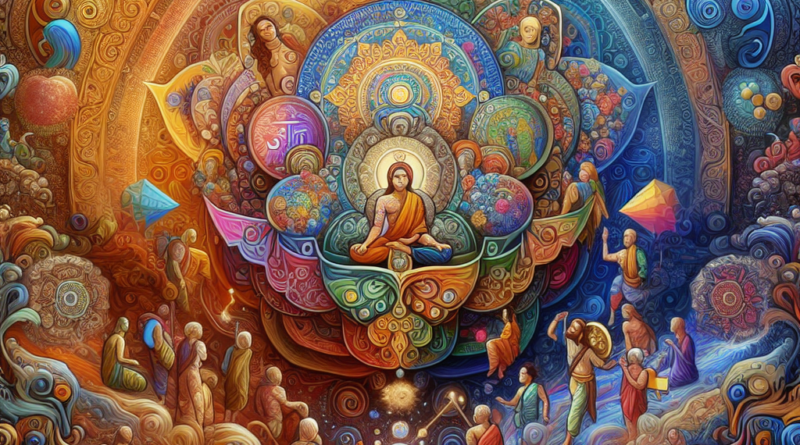Uncovering the Spiritual Roots of Mental Health
Title: Exploring the Intersection of Hinduism and Modern Psychology: A Cultural Perspective
Introduction:
Hinduism, one of the world’s oldest religions, has a rich cultural and philosophical heritage that has influenced various aspects of Indian society for centuries. The intricate tapestry of Hindu beliefs, practices, and rituals offers a unique perspective on life, consciousness, and human behavior. In recent years, there has been a growing interest in exploring the connections between Hinduism and modern psychology, as both disciplines seek to understand the complexities of the human mind and behavior. This article delves into the historical context and contemporary relevance of the intersection between Hinduism and modern psychology, focusing on the cultural significance of Indian spirituality and philosophy.
Historical Context:
Hinduism, with its roots dating back thousands of years, has provided a framework for understanding the nature of human consciousness and the interconnectedness of all beings. The ancient texts such as the Vedas, Upanishads, and Bhagavad Gita contain profound insights into the workings of the mind, emotions, and behavior. Concepts like karma (the law of cause and effect), dharma (duty or righteousness), and moksha (liberation from the cycle of birth and death) have shaped the moral and ethical values of Indian society.
The practice of yoga, a discipline that combines physical postures, breathing techniques, and meditation, has been a cornerstone of Hindu spirituality for millennia. Yoga aims to harmonize the body, mind, and spirit, leading to self-awareness, inner peace, and spiritual growth. The teachings of ancient sages like Patanjali have laid the foundation for modern forms of psychotherapy and mindfulness practices, emphasizing the importance of self-reflection, self-regulation, and self-transformation.
Contemporary Relevance:
In the modern era, the integration of Hindu philosophy and psychology has gained traction in academic and therapeutic circles, offering new perspectives on mental health, well-being, and personal development. The principles of mindfulness, compassion, and non-attachment found in Hinduism resonate with contemporary approaches to psychotherapy, such as cognitive-behavioral therapy, acceptance and commitment therapy, and mindfulness-based interventions.
The concept of self-realization, or understanding one’s true nature beyond the egoic self, aligns with the goal of modern psychology to help individuals cultivate self-awareness, authenticity, and resilience. By exploring the depths of consciousness through practices like meditation, visualization, and introspection, individuals can uncover unconscious patterns, heal psychological wounds, and transcend limiting beliefs.
The practice of Bhakti yoga, or the path of devotion, emphasizes the power of love, surrender, and service as a means to connect with the divine and overcome psychological suffering. By cultivating a sense of interconnectedness with all beings and surrendering to a higher power, individuals can find solace, purpose, and meaning in the face of life’s challenges and uncertainties.
The cultural significance of Hindu rituals and festivals, such as Diwali, Holi, and Navaratri, provides a sense of community, belonging, and spiritual nourishment for individuals seeking to integrate their cultural identity with modern psychological insights. These celebrations offer opportunities for self-expression, creativity, and catharsis, fostering emotional well-being and social cohesion within the community.
Conclusion:
In conclusion, the intersection of Hinduism and modern psychology offers a rich tapestry of insights, practices, and wisdom that can enhance our understanding of the human mind and behavior. By exploring the historical context and contemporary relevance of Hindu cultural significance, we can bridge the gap between ancient wisdom and modern science, fostering a holistic approach to mental health and well-being. As we continue to unravel the mysteries of the human psyche, let us draw inspiration from the timeless teachings of Hindu philosophy and spirituality, guiding us on a path of self-discovery, transformation, and transcendence.

